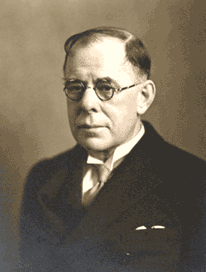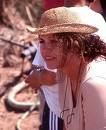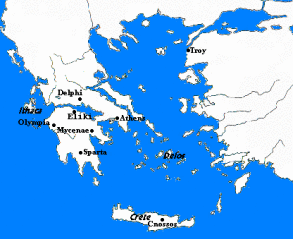A. E. Taylor
Taylor, Alfred Edward
 Alfred Edward Taylor (1869-1945) was a British philosopher and Professor of Moral Philosophy at the University of St. Andrews and subsequently at the University of Edinburgh. He was the author of a number of works on philosophy and metaphysics which included a commentary on Plato’s Timaeus and Critias [853]+. However, Taylor considered the Atlantis story to be “an invention of Plato’s fancy.”
Alfred Edward Taylor (1869-1945) was a British philosopher and Professor of Moral Philosophy at the University of St. Andrews and subsequently at the University of Edinburgh. He was the author of a number of works on philosophy and metaphysics which included a commentary on Plato’s Timaeus and Critias [853]+. However, Taylor considered the Atlantis story to be “an invention of Plato’s fancy.”
He also referred to the wilder Atlantis theories which “seem to have a curious fascination for the imperfectly educated.” Ouch!
[853]+ https://archive.org/details/in.ernet.dli.2015.499834?q=Atlantis *
Critias [Dialogue] *
Critias is the title of one of the two dialogues of Plato that gave the world its first unambiguous mention of Atlantis. Benjamin Jowett’s English translation of 1871 is widely available on the Internet(a) as it is now out of copyright.
The Critias dialogue ends in the middle of a sentence while on the point of revealing more about Atlantis. This fact has generated regular comments over the centuries and some have concluded that Plato grew tired of the Atlantis story, while others suggest that he was at the end of his writing career and old age or illness prevented him from finishing the dialogue. However, since it is accepted that Plato’s Laws, which also ends abruptly, was written later than Critias the idea that death prevented its completion does not hold up.
Perhaps relevant to the incomplete Critias, is the suggestion that there is an entire intended dialogue missing, apparently with the possible title of Hermocrates. This would appear to be confirmed by Critias 108 which twice mentions, in the same passage, that Hermocrates is due to make a contribution of some substance, which the repetition implies!
The British philosopher, A.E.Taylor, held the view that Critias had only reached the stage of being just a rough draft[0853]. Taylor believed that Atlantis was just an invention of Plato.
H. S. Bellamy in his book The Atlantis Myth points out that there is no evidence of any classical writer commenting on the unfinished nature of Critias until Plutarch, at the beginning of the second century AD. The implication of this is that the original manuscript was completed but somehow over the centuries, the final part of Critias was lost. It is easier to believe that the final incomplete sentence was originally at the end of a line of text at the bottom of a page that became separated from the following leaves than imagine that a person of Plato’s literary stature was incapable of finishing a sentence. I am tempted to subscribe to this theory and hope that somehow a copy of the ‘missing’ pages turn up in some obscure library.
P. P. Flambas recently published a paper in which he argues that the Critias dialogue had been completed, but that the ending had been lost. In a subsequent online discussion(g), the most salient opposing comment, for me, came from Thorwald C. Franke who proposed that the Critias was never finished and “the Hermocrates never written, since there are not any other testimonies from ancient authors. All the other dialogues have left traces in ancient literature.”
George Sarantitis offers a novel explanation for the sudden ending of Critias. He proposes that Plato finished his narrative where Zeus was about to speak in the expectation that his audience would have been guided by the earlier content of Timaeus to complete the text with an utterance by Zeus in Homer’s Odyssey (1.32-34) “O alas, the manner in which the mortals put the blame on the gods. For they claim that from us do derive their misfortunes, yet often they themselves with their wicked deeds (hubristically behaviour) fall into grief beyond what can be written.” (Sarantitis’ translation).
His full argument can be read online(c).
A few years ago a Greek by the name of Keramidas produced what he claimed was the missing ending to Critias(b). It was an unconvincing piece that was quickly dismissed as spurious.
This questioning of the authenticity of some of Plato’s works is not new(f). Joseph Socher, writing in the early 19th century [1740], rejected as spurious Hipparchus, Minos, Kleitophon, Alkibiades II., Eraste, Epinomis, Epistole, Parmenides, Sophistes, Politikus, Kritias: also Charmides, and Lysis, these two last however not quite so decisively. He puts Protagoras into the second period and Phaedrus into the third. But the most peculiar feature of his theory is, that he rejects as spurious Parmenides, Sophistes, Politikus, Kritias.
Others who wrote in a similar manner were two 19th-century philologists Suckow and Socher and more recently Victor Tejera (1922-2018) [1741]. as well as two commentators from the Sorbonne Marwan Rashed and Thomas Auffret who published in Phronesis (62, 2017, 237-264) an article(d) challenging the authenticity of the Critias, based on a supposed contradiction between Timaeus 27a-b and Critias 108a-c. Their claim was refuted by Harold Tarrant and Thorwald C. Franke(e) who also found some of Tarrant’s arguments ‘strange’.
(a) The Internet Classics Archive | Critias by Plato *
(b) https://atlantisonline.smfforfree2.com/index.php?topic=333.0
(c) https://platoproject.gr/mom-1/ (section 5)
(d) https://www.academia.edu/35745984/On_the_Inauthenticity_of_the_Critias_Phronesis_62_2017_ (Part of Abstract)
(e) https://www.atlantis-scout.de/atlantis-authenticity-critias-engl.htm
(f) https://www.open.uwi.edu/sites/default/files/bnccde/grote/platovol1ch7.htm
(g) (99+) Discussion: The Incomplete Critias.docx – Academia.edu
Helike *
Helike (pronounced he-LEEK-ee) was an ancient Greek city in Achaea, which was submerged by an earthquake and accompanying tidal wave in the winter of 373 BC.Strabo describes Helike as being 12 stades distant from the sea (geog.8.7.2)(g). The same event also destroyed the city of Boura located southeast of Helike(h).
tidal wave in the winter of 373 BC.Strabo describes Helike as being 12 stades distant from the sea (geog.8.7.2)(g). The same event also destroyed the city of Boura located southeast of Helike(h).
In 1988 the Greek archaeologist Dr. Dora Katsonopoulou and Dr. Steven Soter established the Helike Project(a) with the aim of locating the lost city. Katsonopoulou grew up just a few miles from the Helike site and would have been fully aware of any local stories regarding its destruction. It took until 2001 before their excavations were successful. Fortunately, a BBC Horizon team was on hand to record the event and have made a transcript of the transmission available on the Internet(b). The work has continued every year since then. It is worth noting that during the excavation of the town, an even earlier Bronze Age settlement was unearthed nearby that may have greater significance than Helike itself.
The Helike/Boura disaster took place just a few years before Plato wrote his Timaeus and Critias dialogues, which are believed to be among his last compositions, dated 355-347 BC(c). Frank Joseph erroneously claims that Plato could not have been influenced by the Helike disaster, because according to Joseph the Atlantis dialogues were written 25 years before the obliteration of Helike [1074.14]. Coincidentally, there was another Greek inundation following an earthquake during Plato’s lifetime at a place with the evocative name of Atalanta!
 One suggestion is that Plato had been aware of Solon’s story for some time but with the dramatic destruction of Helike he found that the story of the destruction of Atlantis would be more credible if given a similar demise.
One suggestion is that Plato had been aware of Solon’s story for some time but with the dramatic destruction of Helike he found that the story of the destruction of Atlantis would be more credible if given a similar demise.
Katsonopoulou contends that this disaster was the inspiration for Plato’s story of the destruction of Atlantis and presented a paper to the 2005 Atlantis Conference [629.327], outlining her views. Although she is seen as the champion of the Helike-Atlantis theory she was not the first to suggest a possible connection.
The British philosopher A.E. Taylor (1869-1945) was probably the first, in 1928, to consider the destruction Helike as a template for the demise of Plato’s Atlantis[638]. This idea was endorsed(f) a couple of years later by the French writer Perceval Frutiger[639] and in the 1980s, Professor Adalberto Giovannini(d), a Swiss historian as well as Phyllis Young Forsyth both viewed the Helike event as having had some influence on Plato’s narrative of the Atlantis story.
(b) https://www.bbc.co.uk/science/horizon/2001/helike.shtml
(c) https://web.archive.org/web/20240627222643/https://iep.utm.edu/plato/ *
(d) https://historyandsoon.wordpress.com/2015/10/22/uncovering-the-lost-city-of-helike/
(e) THE ATLANTIS HYPOTHESIS: Searching for a Lost Land, International Conference Atlantis 2005, 11 – 13 July 2005, Milos Island, Greece,Atlantis milos: Abstracts (archive.org) (abstract only)
(f) http://www.geoprobe.org/helike/atlantis.html
(g) Strabo, Geography, Book 8, chapter 7, section 2 (tufts.edu)
(h) https://en.wikipedia.org/wiki/Bura_(Achaea)
